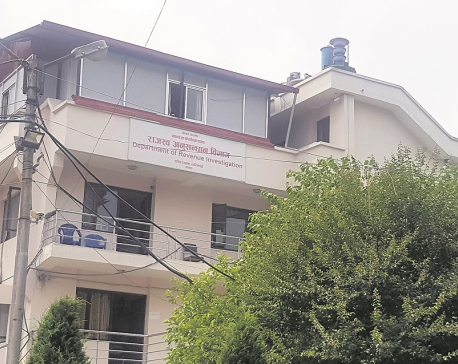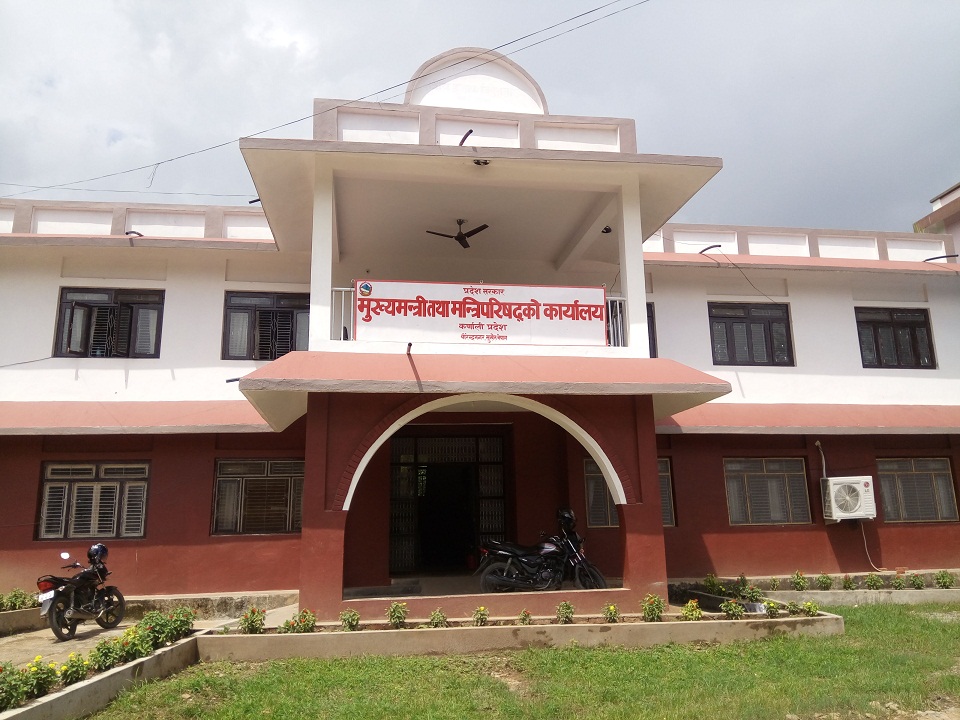
OR
VCTS gets overwhelming response
Published On: September 21, 2019 08:35 AM NPT By: Muna Sunuwar | @TheMunaSun
10,000 consignments registered daily
KATHMANDU, Sept 21: Despite initial opposition from the private sector, over 10,000 consignments are being registered in the vehicle consignment and tracking system (VCTS) every day nowadays, according to the Department of Revenue Investigation (DRI).
“More than 600,000 consignments have registered into the system in the past two months,” said Dirgha Raj Mainali, director general at DRI. “We have been receiving positive response and the compliance rate is increasing accordingly.”
He said as the parties involved in trade have understood the system and its benefits now, the private sector has become positive about its implementation.
“We hold monthly meetings with the private sector including the Federation of Nepalese Chambers of Commerce and Industry (FNCCI) and Nepal Chamber of Commerce (NCC),” he told Republica.
Earlier, the private sector had shown concerns over the mandatory implementation of the provision all at once, and had asked the government to implement it in phases.
About 10,000 firms have signed up for the VCTS. The entry of more than 1 million bills and invoices and transaction of around Rs 8 billion have been recorded in the system so far, according to Mainali. “The number of agencies who are responsible for the entry is increasing. It has reached 168 in just two months.”
The system is developed in a way to track all parties involved in the trade activity. The movement of the cargo and consignment can be tracked as soon as the vehicle carrying the consignments is registered in the system.
Companies involved in trading, manufacturing, transportation business, and importers along with custom agents are required to sign up for the VCTS. The department claims that the system will be beneficial to all parties including traders, consumers, and the government. The system requires the vehicles carrying commodities for wholesalers to be registered in the online-based tracking system before transportation begins.
Details like nature of goods, number of motor vehicles carrying goods, number plate of motor vehicles and name of the driver, Permanent Account Number (PAN) of both sellers and buyers, and cost of the products need to be entered into the system.
Upon entry of the details, the system will produce a manifesto with a QR code that can be scanned for details of the consignment. The implementation of the system is expected to make the trade systematic by controlling transportation malpractices and revenue leakage through smuggling.
According to the IRD, there has been no problem as of now regarding the system and its usage. The IRD officials consider the usability and the quality of the system as an important component. “It is a real-time system developed in Nepal and if any problem comes into the system, it can have adverse effect on the process,” said Mainali.
The department has assigned a technical staff of four engineers on standby to deal with any problem that may emerge while the system is being implemented.
He said that as companies get registered, they will continue to sign up to the system. The VCTS will be mandatory from mid-October. According to the DRI, traders will be liable to fines of up to Rs 50,000 for the first time and Rs 75,000 for the second time if they do not abide by the VCTS rules. The director general of the DRI has the authority to take action against those who do not join the system within the next month. The DRI had removed 10 check posts as part of enforcing the system.
You May Like This

Meet Adukia: A most-wanted fugitive in the 100kg gold smuggling case
KATHMANDU, July 28: The Department of Revenue Investigation (DRI) has launched a manhunt for Rakesh Kumar Adukia, who is one... Read More...

Five firms accused of embezzling Rs 410 million using fake VAT bills
KATHMANDU, Dec 2: The Department of Revenue Investigation (DRI) on Wednesday filed cases at the High Court in Patan against... Read More...

DRI files case against 15 people for evading Rs 3 billion in revenue
KATHMANDU, June 21: The Department of Revenue Investigation (DRI) has filed a tax avoidance case in the Kathmandu district court... Read More...


Just In
- MoEST seeks EC’s help in identifying teachers linked to political parties
- 70 community and national forests affected by fire in Parbat till Wednesday
- NEPSE loses 3.24 points, while daily turnover inclines to Rs 2.36 billion
- Pak Embassy awards scholarships to 180 Nepali students
- President Paudel approves mobilization of army personnel for by-elections security
- Bhajang and Ilam by-elections: 69 polling stations classified as ‘highly sensitive’
- Karnali CM Kandel secures vote of confidence
- National Youth Scientists Conference to be organized in Surkhet

















Leave A Comment